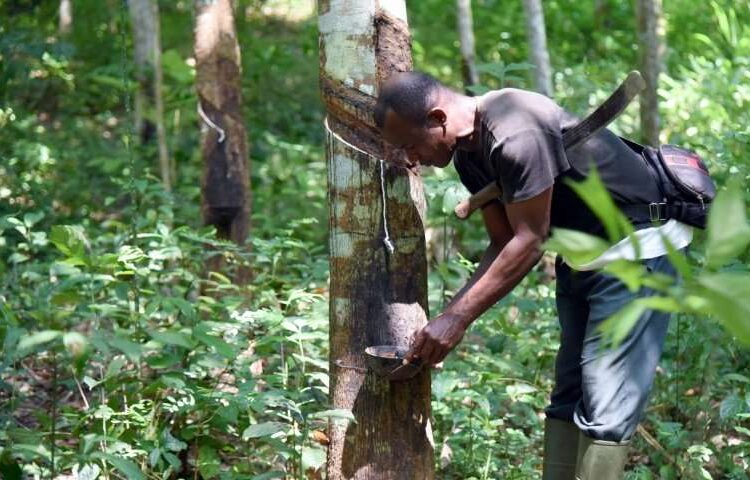The Federal Government inaugurated an 11-man Technical Committee in Abuja on Friday for the resuscitation of Nigeria’s rubber and tyre industry.
Minister of Industry, Trade and Investment, Otunba Adeniyi Adebayo inaugurated the committee and charged it to produce a roadmap to revive the industry in line with international best practices.
“You are to develop policy guidelines that will bring back local tyre manufacturing and develop a framework to secure government’s funding for the industry,’’ he said.
The minister also tasked the committee to interface with state governments to promote rubber plantations and secure funding strategies suitable for planting of rubber trees ready for tapping between six years and seven years.
He expressed confidence that state governments would support the industry and show prompt and timely implementation of the project.
“I request the committee to set up subcommittees that will address some specific issues concerning rubber plantations, tyre industry, proper processing and financing.
“I want to assure you of the continued support of the Federal Government to resuscitate Nigeria’s rubber and tyre industry,’’ Adebayo said.
Earlier, Prince Peter Igbinosun, National President of National Rubber Producers, Processors and Marketers Association of Nigeria (NARPPMAN), described rubber as one of the most economically viable commodities.
Rubber promises good returns on investment and high volumes of by-products; it is engaging and creates employment opportunities at various levels of its value chain, he said.
He noted that rubber also evolves strong social impact and produces billions of tons of oxygen and is environmentally friendly, bio-degradable and non-perishable.
“We are looking forward to a vibrant committee that will develop at least a 10-year rubber development policy that will encourage investments, especially raw materials for industrial growth and development.
“Rubber has six years to seven years gestation period, which is a serious disincentive to investors and financial houses.
“Rubber production is capital intensive, labour intensive, land intensive and requires special skills in production.
“Recommending a special package for developing long gestation crops like rubber by the CBN should be one of the responsibilities of this committee,’’ he said.
Igbinosun commended the minister for introducing NARPPMAN to state governments, saying that their collaboration in developing the rubber sub-sector in their states was paying off.
“Some governors have keyed into the programme,’’ he noted.
Igbinosun noted also that the tyre industry in Nigeria collapsed and manufacturers relocated because of power challenge, insecurity, multiple taxation, community influence and repatriation.
According to him, the cost of diesel and maintenance of generators impacted negatively on the profit of the companies, especially Michelin, Dunlop and Bridgestone.
“Insecurity prevalent in the Niger Delta, multiple taxations, community influence and repatriation also contributed to their relocation
“Today serious accidents traceable to tyre failure have claimed many lives. This is so because the cost of buying new tyres is beyond the reach of cab drivers and most motorists.
“We also hope that the committee will look into these areas and recommend solutions,’’ Igbinosun stressed.












